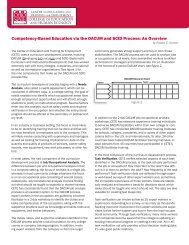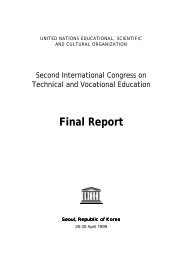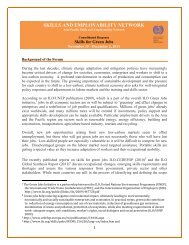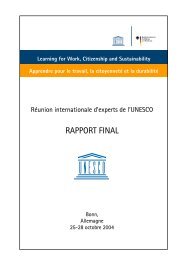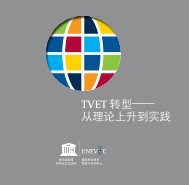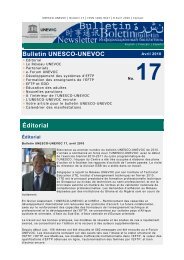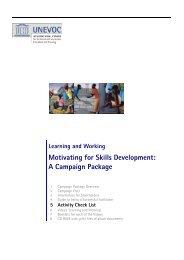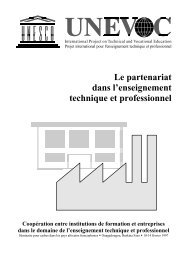FACTORS AFFECTING THE PERFORMANCE OF WOMEN ENTREPRENEURS IN MICRO ...
FACTORS AFFECTING THE PERFORMANCE OF WOMEN ENTREPRENEURS IN MICRO ...
FACTORS AFFECTING THE PERFORMANCE OF WOMEN ENTREPRENEURS IN MICRO ...
You also want an ePaper? Increase the reach of your titles
YUMPU automatically turns print PDFs into web optimized ePapers that Google loves.
yet are not able to borrow from banks. The other profile is of the woman who, because of<br />
her higher education, previous work experience, and better economic circumstances, has<br />
access to the financial and other resources needed to start and grow larger enterprises.<br />
Members of the Ethiopian Women Exporters’ Forum (EWEF) are illustrative of this<br />
group, although even members of the EWEF complain about inadequate access to<br />
commercial bank loans to meet their working capital needs because of the rigid<br />
requirement for collateral guarantees (which they often cannot meet). Research has<br />
shown that it is possible for women to make the transition from a micro to a small<br />
enterprise under the right circumstances. The ILO (2003) study of women in growth<br />
enterprises found that 70 per cent of the women entrepreneurs currently engaged in small<br />
enterprises had started them as micro-enterprises and grown them over time.<br />
Eshetu and Zeleke (2008), ILO (2003) also identified that the following are the main<br />
challenges that women entrepreneurs in Ethiopia face in a sequential order from very<br />
Sevier to least important.<br />
• Difficulty in obtaining loan from commercial banks<br />
• failure of business/bankruptcy<br />
• Failure to convert profit back into investment<br />
• Shortage of technical skills<br />
• Poor managerial skills<br />
• Low level of education<br />
Furthermore, ILO (2003) found that lack of suitable location or sales outlet; stiff<br />
competition; low purchasing power of the local population; lack of marketing knowhow;<br />
seasonal nature of the business ;lack of market information ;inadequate infrastructure<br />
;shortage of time (due to multiple tasks) ;shortage of raw materials ;Shortage of working<br />
capital are constraints of women entrepreneurs in Ethiopia.<br />
A study conducted by ILO (2008) in Ethiopia, the United Republic of Tanzania and<br />
Zambia identified that, women entrepreneurs do not have the same access to networks as<br />
men; women entrepreneurs have difficulties accessing premises due to, among other<br />
things, a lack of property and inheritance rights; women’s lack of access to titled assets<br />
21



